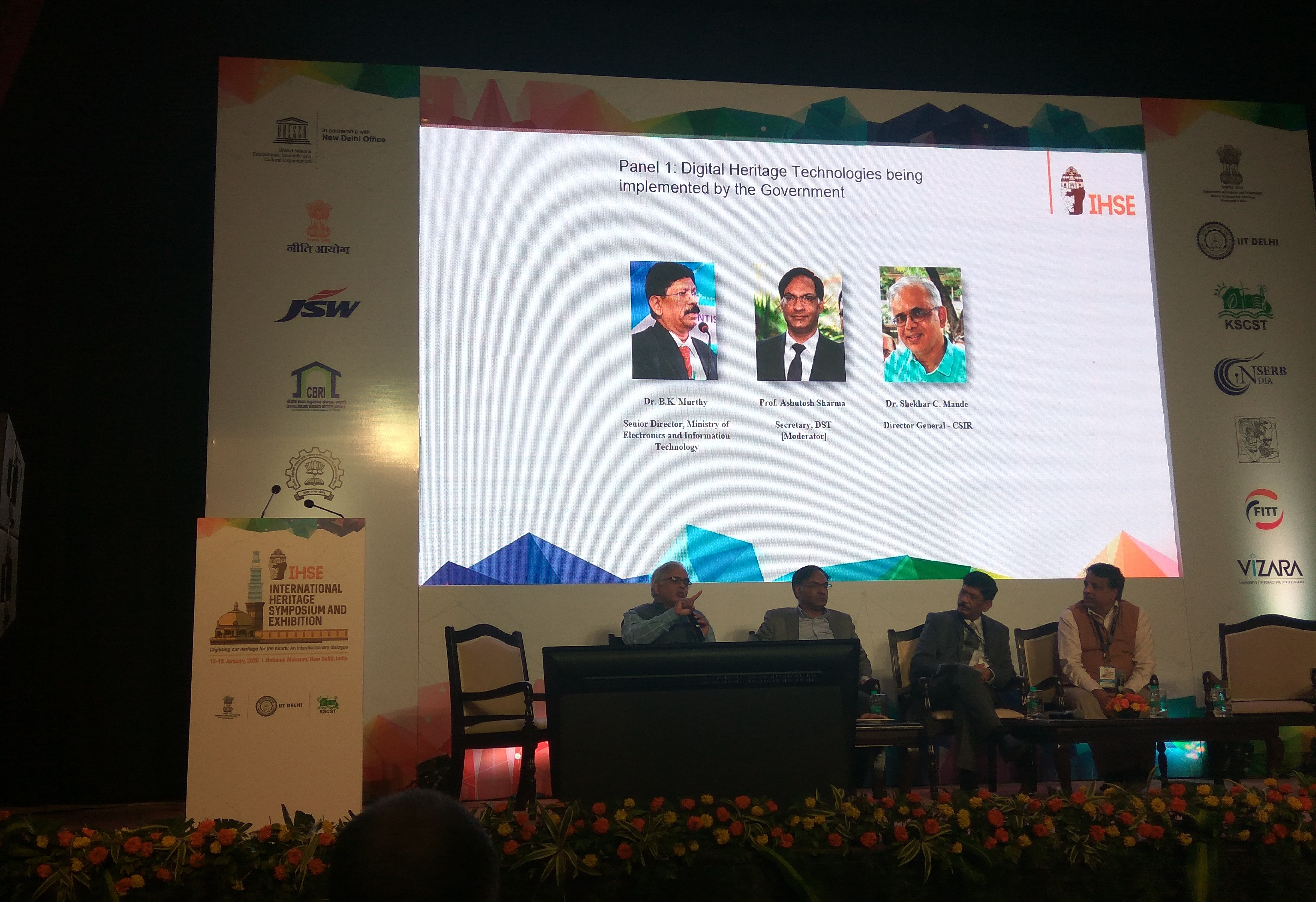Experts at the International Heritage Symposium and Exhibition (IHSE) highlighted the necessity of digitization of ancient books and manuscripts and making them alive through this initiative.
“Digitization should focus on connecting books with society, economic system, including cross referencing, commentaries in it and not merely preserving them as PDF documents,” Secretary Department of Science and Technology (DST) Professor Ashutosh Sharma pointed at the panel discussion on Digital Heritage Technologies being implemented by the government at the IHSE.
He added that the purpose of digitization of books should be able to provide new incite or knowledge and new models should be evolved for that.

Experts pointed out the necessity of developing Optical Character Recognition (OCR)s of the Indian languages to make looks alive, searchable and relevant. They said that social scientists, language experts and technologists need to work together towards this common interest and share expertise in their respective fields.
Director General CSIR, Dr Shekhar Mande, Experts offered the expertise of CSIR to preserve ancient texts that reside in places like the oriental library. He added that the scope of the Traditional Knowledge Digital Library which was so far confined to medicinal knowledge can be expanded to cover agricultural practices, manuscripts and much more.
While some of the experts underlined the need for preserving documents on India’s astronomical history, Professor P J Narayanan, Director IIIT, Hyderabad elaborated about the vast span of areas of heritage that can be preserved through digitization and highlighted the importance of each.
Just like in case of books, Professor Sharma pointed out that technology should not limit to merely capture what exists, but extrapolate to make the existing heritage more relevant. For example, one could explore whether Artificial Intelligence could create new dance recitals and experts from all fields should put their skills together to work on emerging ideas.






























